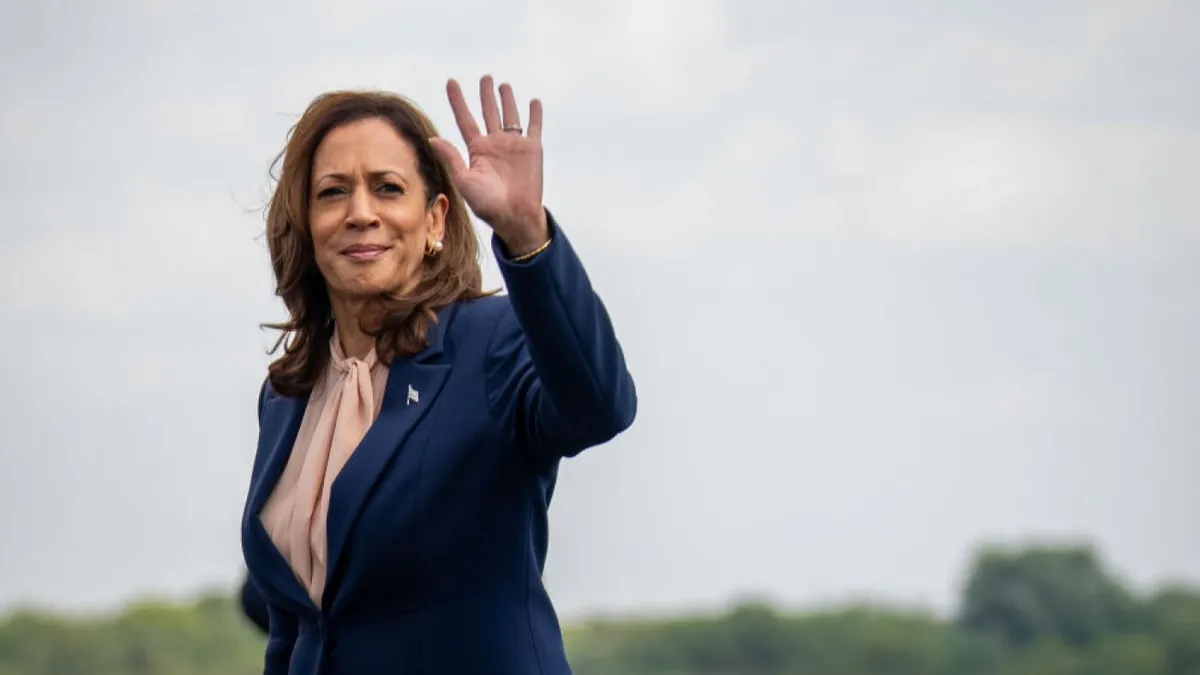
Former Vice President Kamala Harris is set to release her highly anticipated memoir, titled “107 Days,” on Tuesday. This book provides readers with a unique blend of personal insights and reflections stemming from her remarkably brief campaign for the presidency, which came to an end after Joe Biden withdrew from the race. Despite being out of the public eye since her defeat to Donald Trump last November, Harris’ memoir marks the beginning of a cross-country tour aimed at re-engaging with the public. Below are five significant takeaways from her memoir.
One of the central themes in Harris' memoir is loyalty. She opens with a poignant quote from Kendrick Lamar's "DNA": "I got loyalty, got royalty inside my DNA." Throughout the book, Harris expresses her belief that she was loyal to the Biden family, but felt that the sentiment was not reciprocated. She recounts instances where Biden and his staff questioned her loyalty, particularly during the chaotic aftermath of a poor debate performance last summer. This environment of distrust was exacerbated when First Lady Jill Biden asked Harris' husband, Doug Emhoff, if they were still supporting the Bidens, a move that Harris indicated left Emhoff feeling irritated. In another instance, Biden called Harris right before a debate, focusing on his own insecurities rather than offering her support, which left her bewildered.
While Harris refrains from explicitly stating that Biden should not have pursued a second term, she does address concerns regarding his mental capacity and the management of his fatigue by his staff. She argues that she was in a precarious position, unable to voice her concerns without appearing disloyal or ambitious. Harris acknowledges that it may have been reckless to leave Biden's decision to run solely in his hands, admitting in a recent MSNBC interview that she felt a personal responsibility to intervene. This reflection highlights the complexity of her relationship with Biden and the weight of her role in his administration.
In a surprising revelation, Harris shares that her first choice for a running mate was Pete Buttigieg, her former opponent and current transportation secretary. She praises Buttigieg as a skilled communicator and believes he would have been an ideal partner; however, she had reservations regarding how the public would perceive a ticket featuring a Black woman married to a Jewish man alongside a gay man. Ultimately, she selected Minnesota Governor Tim Walz, who she felt had no presidential aspirations, in contrast to Pennsylvania Governor Josh Shapiro, whom she critiques for his ambition.
Throughout the memoir, Harris opens up about her personal challenges, particularly the strain her presidential campaign placed on her relationship with Emhoff. Despite her typically reserved public persona, she attempts to share her story and connect with voters more authentically. The book revisits familiar themes from her campaign speeches and reflects on her experiences as vice president, including meetings with international leaders and her advocacy for issues such as gun violence prevention.
As the memoir concludes, Harris provides vague insights into her vision for the future of the Democratic Party and the nation. She emphasizes the need for a new blueprint that prioritizes education for Generation Z. While she touches on pressing issues like transgender athletes and the conflict in Gaza, Harris does not offer concrete strategies for addressing these challenges. Additionally, she remains ambiguous about her own political future, stating that answers will not come from Washington. Her upcoming book tour, beginning in New York and extending to nearly 20 stops across the United States, London, and Toronto, will likely provide more context for her evolving role in politics.